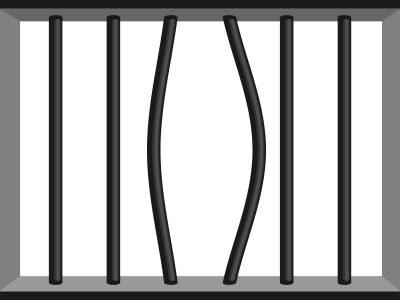Content warning: This article contains spoilers for the film “Promising Young Woman” and discusses sexual assault and suicide.
The film “Promising Young Woman” centers around a woman named Cassie seeking to avenge her best friend, who was raped while the two were in medical school. The perpetrator, Al Monroe, never received punishment of any form at the time. As a result, her friend dropped out of school and committed suicide.
The film explores all the ways our social and cultural systems continually fail survivors of sexual assault. When one character was asked why he stood by and watched Cassie’s friend get assaulted, he exclaimed, “We were just kids.”
When Cassie confronts the dean of her medical school and asks why she dismissed her friend’s sexual assault case, the dean explained that claims of sexual assault could ruin an alleged perpetrator’s life.

It is an unfortunately accurate reflection of reality. Fewer than one-third of students found responsible for sexual assault on university campuses were expelled, according to a 2017 analysis of sexual assault cases in colleges by The Huffington Post.
On our own campus at Boston University, multiple survivors have alleged their perpetrators received little to no consequences for their actions.
The film’s ending also attempted to capture reality.
When explaining the ending in an interview with Harper’s Bazaar, the film’s director and writer Emerald Fennell stated, “It was the only ending that felt real to me.”
The final moments of the film show Monroe being arrested for his crimes. The sound of sirens in the distance are meant to signal justice — a happy ending. The film indicates to us the intervention of law enforcement may finally grant justice for Cassie’s friend.
But how much of this ending is actually based in reality? What justice could law enforcement really grant to Cassie or her friend? Even when perpetrators of sexual assault are arrested, there is no guarantee they will be kept behind bars for long, especially if they are as white and as wealthy as a someone like Monroe.
Take the Brock Turner case, for instance. The Stanford University athlete was caught sexually assaulting Chanel Miller while she was unconscious in 2015. He was found guilty, but only served three months in jail. Is that justice?
Even if our criminal justice system actually seriously punished rapists, most sexual assault cases don’t get that far. Less than 1% of rapes ever lead to a conviction, according to a 2018 investigation from The Washington Post.

In recent years, sexual assault survivors across the United States have sued law enforcement for negligence and indifference with their cases. Survivors report officers neglecting evidence until it grew mold or failing to interview key witnesses. What justice can law enforcement really offer if they are too incompetent to actually investigate the crime?
Police officers are inclined to not believe women who claim they’ve been sexually assaulted, according to a 2019 investigation conducted by The Atlantic.
Research conducted in police precincts in Detroit and Los Angeles found detectives and prosecutors often determined the validity of a sexual assault claim on the victim’s demeanor rather than the perpetrator’s. One LA detective interviewed for the article even claimed that eight out of 10 claims of sexual assault are false.
In actuality, the frequency of false sexual assault reports is thought to be between 2% and 10%. Keep in mind, much of the literature these statistics are based on does not clearly delineate what a false report is.
Vague FBI guidelines on what a false report actually is may encourage officers to use their own judgement when analyzing sexual assault claims.
Officers have been observed to identify a report as false simply because the victim waited to report their assault, did not perform trauma in the correct manner or did not disclose personal information to officers. The most common behavioral indicator of perceived false reports is inconsistency in stories, followed by “anger at the investigator,” according to the study “Police Perceptions on False Accusations of Sexual Assault” from 2018.
Any narrative based in reality will show law enforcement is far from the solution. And yet, “Promising Young Woman” chose to leave us with the idea that the criminal justice system is the key to a happy ending.
The film’s ending felt incongruent with the central premise of the film. Cassie is on a journey to avenge her friend because the social and institutional systems put in place to protect her friend — the medical school’s disciplinary board or the people who literally watched her get assaulted — failed her.
Most of the film’s runtime is devoted to showing Cassie desperately looking for alternative forms of justice, spanning from psychological manipulation to violence to intentionally putting herself in harmful situations.
Why would a movie that is so cognizant of all the ways our institutions fail victims of sexual assault ultimately fall back on the myth that law enforcement wants to or can bring about any form of justice to sexual assault survivors?
To be clear, I still wanted a happy ending from this movie. I wanted to see Cassie and her friend receive justice. I wanted to see the perpetrators of sexual assault suffer.
But watching Monroe get arrested did not offer any kind of relief in the slightest. If anything, it was as if the film switched genres to be set in a fantasy world in which law enforcement actually cares about survivors of sexual assault.
The sooner we realize there are no “happy endings” in the sound of sirens, the sooner we can actually work toward constructing a system of justice that actually cares for survivors of sexual assault.
























































































































Elizabeth Mell • Apr 12, 2021 at 11:51 am
You need to get your facts straight on Brock Turner. You feed the flames of misinformation that incited hatred and puts lives in danger. You can’t judge if all you do is follow a MSM narrative that was designed to incite hatred. Read “Collateral Damage” which has been endorsed by serious legal scholars. If you dismiss Life time sex offender registry and daily death threats then you don’t understand what you are talking about. Put sex offender registry on your resume and try to get an education, a job, housing. Try getting a hospital bed or traveling or even seeing your own kids without supervision. All those homeless you think should be housed. Go on a SJW trip and find out how many are registrants. Just last week a homeless man in Manchester New Hampshire was shot by someone. The motive was unknown but when they looked into the identity of the homeless man they discovered he was a registrant. Careful what you wish for. Read trial transcripts, not propaganda. Find the 6000 emails that reveal Stanford law professor/activist Michele Dauber’s collusion with the DA and reveal that the Emily Doe letter was written by her. Look at the UVA Rape Hoax in Rolling Stone and see that Catherine Lhamon was connected to that. And find out what the Mayor of Boston knew about Patrick Rose , charged with child sexual assault. The very people who you think are tackling sexual assault are doing nothing of the sort. They are protecting their friends. Seek the truth then rewrite your article. Real justice will not incite a hate mob against Brock Turner. It would incite an investigation into Professor Michele Dauber, Stanford Police and the DA’s office. Read “Collateral Damage” a thoroughly researched account of the incident. Don’t let you or your friends become victims of lynch mobs inspired by propaganda.